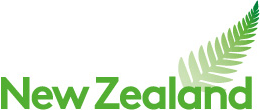Wellington Head Offices, NZ
44 Mairangi Road, Wadestown
Wellington 6012, New Zealand
Business Development Team
Phone: +64 4 830 3351
Email: enquiries@newzealand-incorporation.com
44 Mairangi Road, Wadestown
Wellington 6012, New Zealand
Phone: +64 4 830 3351
Email: enquiries@newzealand-incorporation.com
New Zealand (NZ) is an island country in the South Pacific Ocean located about 2,000 km (1,300 mi) southeast of Australia. The island-nation consists of some smaller islands and two main islands, the North Island (Te-Ika-a-Maui) and the South Island (Te Wai Pounamu), which are separated by the Cook Strait. New Zealand shares maritime borders with Australia, the island nations of Fiji and Tonga.
New Zealand’s islands are the surface area of the continent of Zealandia. Zealandia, now for the most part submerged, was formerly a large portion of the super-continent of Gondwanaland.
The geopolitical entity of the Realm of New Zealand comprises New Zealand, the Cook Islands, Niue (an island), Tokelau (some coral atolls), and the Ross Dependency, a region in Antarctica.
With an area of 270,467 km², the country is slightly larger than the United Kingdom (242,900 km²), or about the size of the US State of Colorado.
New Zealand has a population of 4.9 million people (beginning 2020). The capital is Wellington, the country’s largest city is Auckland. Spoken languages are English (95%) and Māori, the language of the indigenous Māori people of New Zealand.
Agriculture is the economic mainstay, but manufacturing and tourism are important. Visitors are drawn to the glacier-carved mountains, lakes, beaches and thermal springs. Because of the islands’ geographical isolation, much of the flora and fauna is unique to the country.
A member of the British Commonwealth, New Zealand has a stable democracy with an easy to understand legal system based on British common law. This well-respected Australasian country is also a member of the Organization for Economic Cooperation and Development (OECD), the World Bank and numerous other international organizations.

In the 2014 Index of Economic Freedom, New Zealand was ranked 5th in the world and has been rated one of the world’s five freest economies every year since 2007. New Zealand is recognized as a premium offshore jurisdiction for the following reasons:
Official Name:
New Zealand – Aotearoa
abbreviation: NZ
ISO Country Code: NZ, NZL, .nz
Time:
Local Time = UTC +12h
DST October – March (+13h)
Actual Time: Sat-Jan-11 10:03
Country Calling Code: +64
Capital City: Wellington (pop. 210,400)
Other Cities: Auckland (1.6 million), Christchurch (385,000), Hamilton (170,000), Dunedin (132,000)
Government:
Type: Parliamentary democracy.
Constitution: New Zealand has no single constitutional document.
Independence: Declared a dominion in 1907.
Chief of State: Queen Elizabeth II
Dependent areas: Cook Islands, Niue, Tokelau.
Geography:
Location: Oceania, islands in the South Pacific Ocean, southeast of Australia.
Area: 270,467 km² (104,427 sq. mi.)
Terrain: varied, from snow-capped mountains and volcanoes to large coastal plains.
Climate: with sharp regional contrasts from temperate to subtropical.
People:
Nationality: Noun–New Zealander(s). Adjective–New Zealand.
Population: 4.9 million (beginning 2020)
GNI per capita PPP: $ 42,862 (per year; in 2020)
Ethnic groups: European 75%, Maori 15%, other Polynesian 6.5%.
Religions: Christian
Languages: English, Maori.
Literacy: 99%
Natural resources: Natural gas, iron ore, sand, coal, timber, hydropower, gold, limestone.
Agriculture products: Wheat, barley, potatoes, pulses, fruits, vegetables, wool, beef, lamb and mutton, dairy products, fish.
Industries: Food processing, wood and paper products, textiles, machinery, transportation equipment, banking and insurance, tourism, mining.
Exports – commodities: Dairy products, meat and edible offal, logs and wood articles, fruit, crude oil, wine.
Exports – partners: China 22.4%, Australia 16.4%, USA 9.9%, Japan 6.1% (2017)
Imports – commodities: Petroleum and petroleum products, mechanical machinery, vehicles and parts,
electrical machinery, textiles.
Imports – partners: China 19%, Australia 12.1%, USA 10.5%, Japan 7.3%, Germany 5.3%, Thailand 4.6% (2017)
Currency: New Zealand Dollar (NZD)
No Obligation. No-Risk.
Completely Confidential Tailor-Made Customized Business Solutions Made Completely for You!
